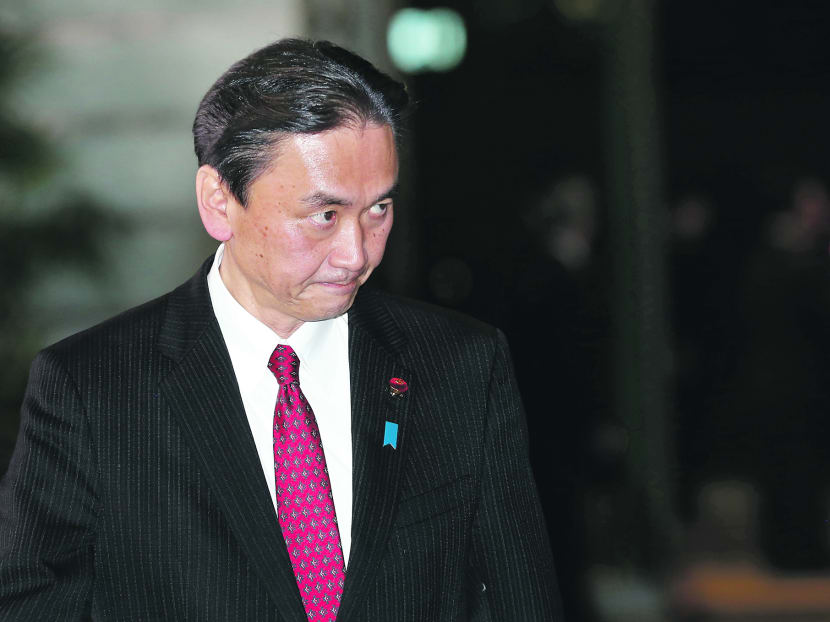Japanese Cabinet minister visits Yasukuni
TOKYO — A Japanese Cabinet minister yesterday visited a controversial Tokyo shrine that honours the dead including war criminals and which has repeatedly caused friction with Japan’s neighbours.

Mr Furuya said he regularly visits the shrine at spring and autumn festivals, and on Aug 15: The day Japan surrendered in 1945 during World War II. PHOTO: AP
TOKYO — A Japanese Cabinet minister yesterday visited a controversial Tokyo shrine that honours the dead including war criminals and which has repeatedly caused friction with Japan’s neighbours.
The visit came a day after Japan began its first military expansion on its westernmost island near an archipelago claimed by China — a move that risked angering Beijing — and ahead of a visit to Tokyo this week by United States President Barack Obama, who is seeking to tamp down tensions caused by Japanese Prime Minister Shinzo Abe’s visit to the shrine last year.
Lawmaker Keiji Furuya (picture), who chairs the National Public Safety Commission, said on his website that he paid respects yesterday morning at the Yasukuni shrine ahead of a festival that starts today.
“I believe that to honour those dead who gave up their lives for our country is the right thing for a Japanese to do,” he said.
The 2.5 million Japanese war dead enshrined there include 14 Class A war criminals from World War II — national leaders who were either executed or died in prison or during their trials.
He said he regularly visits Yasukuni at spring and autumn festivals, and on Aug 15 — the day Japan surrendered in 1945. He chose to go over the weekend because he had duties to attend to during the week.
Visits by Japanese officials to Yasukuni have infuriated China and both Koreas. Internal Minister Yoshitaka Shindo prayed at Yasukuni earlier this month. Mr Abe, who has expressed his desire to see Japan expand its role in regional defence, has regularly visited Yasukuni, but he made a visit as Prime Minister only once, in December.
Mr Abe’s visit had sparked outrage from neighbours China and South Korea, countries with which Japan’s ties were already strained by bitter wartime memories. Japan’s wartime occupation of large parts of China and its colonisation of the Korean peninsula from 1910 to 1945 remains a sensitive issue for both countries.
Relations between Japan and China have also suffered over a territorial row involving a group of uninhabited islands in the East China Sea.
This year’s spring festival at Yasukuni from April 21 to 23 partially overlaps with Mr Obama’s trip to Japan, part of an Asian tour that also includes South Korea, the Philippines and Malaysia.
The US President helped to bring together Mr Abe and South Korean President Park Geun-hye late last month to sit down for a face-to-face meeting for the first time since they took office more than a year ago. The absence of such a meeting between the leaders of key US allies in Asia was a deep concern for Washington.
Some Japanese politicians who visit the shrine argue they are not advocating war but are making a pacific statement by trying to remember those who died and suffered in war. AGENCIES






